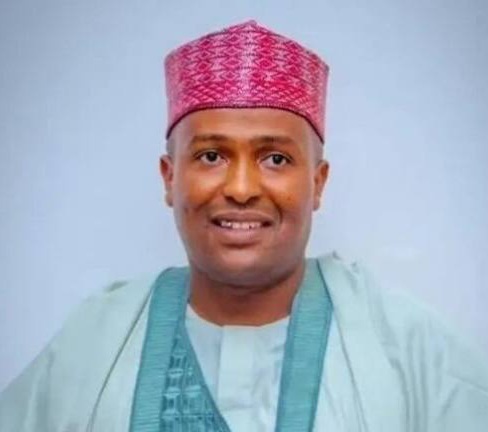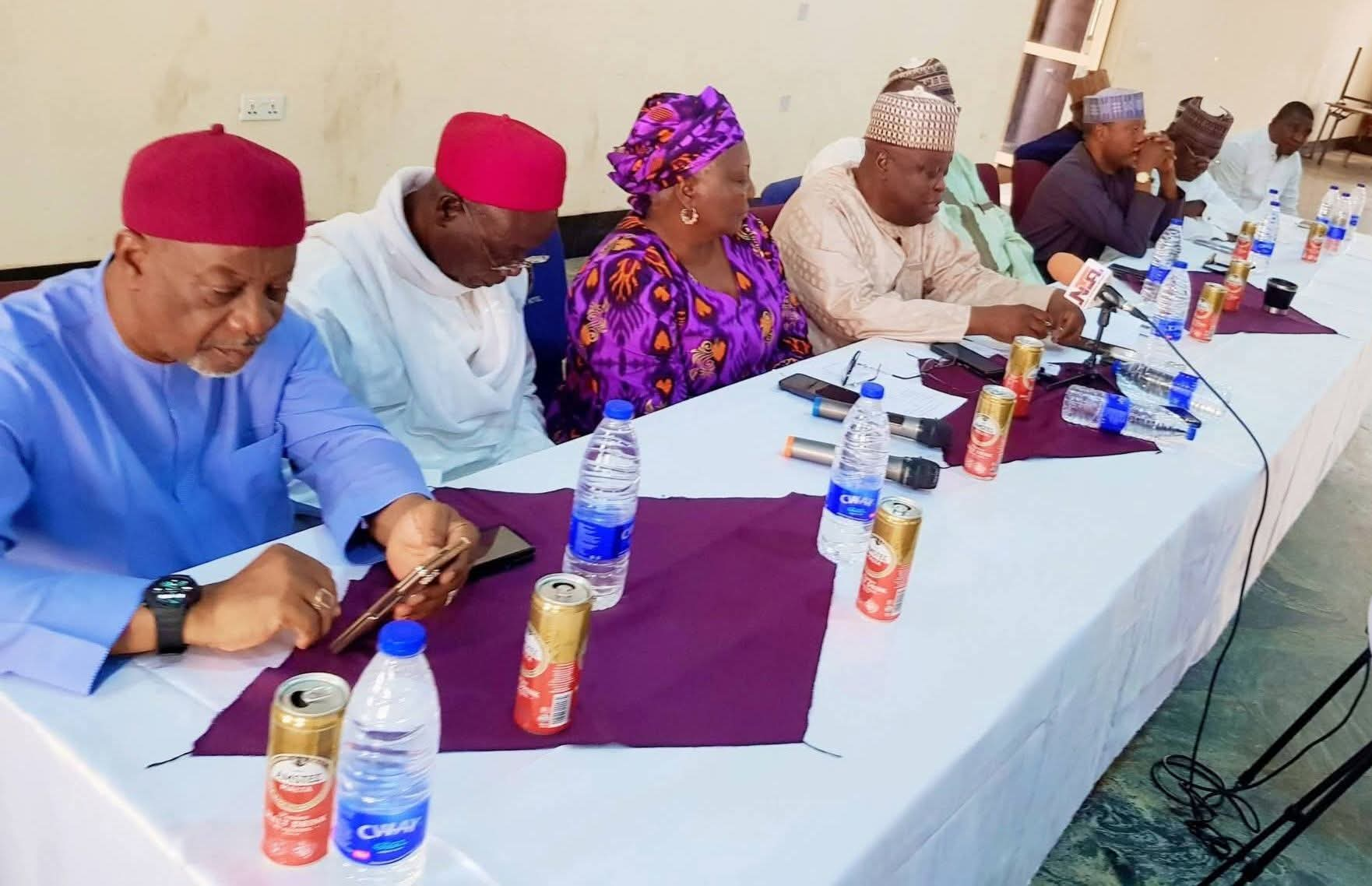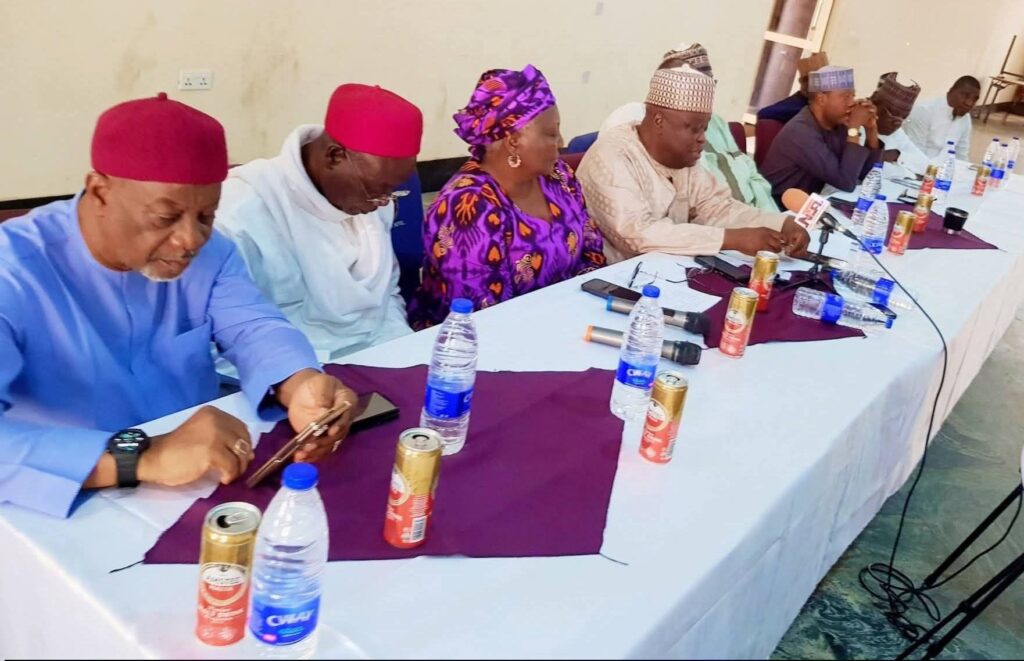News
How FIRS Plans To Realise Its Revenue Target -Fowler

The Federal Inland Revenue Service (FIRS) says it plans to realize its revenue target for the year through recoveries from defaulting millionaire taxpayers, values added (VAT) and compliance enforcement activities.
The Chairman of FIRS, Tunde Fowler, said in January that the agency’s revenue collection target for 2019 was about N8 trillion.
Mr Fowler told the House of Representatives joint committees on Finance, Appropriations, Aids, Loans and Debt Management Legislative Budget and Research and National Planning and Economic Development that he hopes about N750bn would be realized from about 55,000 defaulting taxpayers during the year.
Mr Fowler, who spoke on the 2019/2021 Medium Term Expenditure Framework (MTEF) and Fiscal Strategy Paper (FSP), said using banking information to bring non-compliant taxpayers with N1 billion and above turnover to comply about N23.25 billion has been recovered so far.
He also restated that 85% of VAT collected goes to State Governments. He said the exercise has been extended to cover those with turnover of N100 million and above.
“To date, about 500 of the tax defaulters have come forward and have paid about N24 billion. We believe we should be able to go through the 55,000 before the middle of this year.
“In terms of estimates we should be able to be able to generate from this exercise alone about N750 billion.”
Besides, Mr Fowler said the FIRS also expects that the increase in Value Added Tax (VAT) collection between 2015 and 2018 will continue during the year.
He said FIRS is already broadening its VAT collection scope with the adoption of States Accountants Generals (SAG) collection platform, VAT Auto-Collect, integration of the GIFMIS platform with Ministries, Departments and Agencies, (MDAs) and through e-Service payment options.
Out of about N5.3 trillion, a large percentage of the revenue is shared between states and local governments.’ In VAT, there has been a growth of over 44 per cent between 2015 and 2018 at the current rate of 5 percent.
“When you look at Africa as a continent, Nigeria still has the lowest VAT rate. When we look at the items that do not attract VAT, they include basic food items, medicals, and education.
Insisting VAT is not for the poor, Mr Fowler said if one is able to go to a restaurant to eat and drink the same thing one can buy in the open market, then one can pay VAT.
“So, VAT basically is a consumption tax, and those who choose not to go to the open market to buy their food and cook at home are subject to VAT. So, VAT is not a hardship on the low income earners.
“For those who have the ability and the desire to take the choice of going to areas where they have to pay VAT, then they should be allowed to pay VAT,” he added. He said revenue collection by FIRS increased by about 32 per cent from N4.02 trillion in 2017 to N5.3 trillion in 2018.
The FIRS Chairman told the committee that through enforcement activities in respect of defaulting taxpayers from various tax offices, tax audit and investigation assessments, the agency recovered about N28. 51 billion and $77. 83 million.
Also, the FIRS is partnering with the Economic and Financial Crimes Commission (EFCC) and Joint Tax Force (JTF) since 2018 to enhance the fight against tax related economic fraud. As at December 2018, he said about N6. 94 billion and $278,430 had been recovered by the JTF as part of initiatives to boost revenue generation.
To deepen tax revenue collection and expand the nation’s tax net as well as increase the revenue base, Mr Fowler said the FIRS also initiated income tax on property owners in Abuja and Lagos.
He said the initiative, which was initially targeted at property owners in Abuja and Lagos, has so far yielded N4.3 billion, and is being extended to other locations like Oyo and Kaduna states.
“It is important to note that this is not a property tax, but rather the use of the provisions of the law to bring into the tax net companies that own properties but failed to file necessary tax returns and pay appropriate taxes due,” Mr Fowler said.
On tax audit exercise of the Service, the FIRS boss said this will cover both the National Tax Audit (NTA) and the Pioneer Audit (PA). The NTA exercise contributed the sum of N212.79 billion to tax collection in 2018.
News
Kano Assembly Speaker Jibril Falgore Leads 21 Lawmakers Out of NNPP After Governor’s Exit

The Speaker of Kano State House of Assembly, Jibril Ismail Falgore, alongside 21 other legislators, has formally resigned from the New Nigeria People’s Party following Governor Abba Kabir Yusuf’s departure from the political platform.
The mass resignation, announced on Saturday, includes the Deputy Speaker, Muhammad Bello Butu-Butu, Majority Leader Lawan Hussain, and other principal officers of the state legislature, signaling near-total collapse of NNPP structures in the assembly.
According to a statement released by the Chief Press Secretary to the Assembly, Kamaluddeen Sani Shawai, the lawmakers declared total support for Governor Yusuf, who had exited the party just 24 hours earlier alongside eight federal lawmakers and all 44 local government chairmen in the state.
The defecting legislators include Deputy Majority Leader Garba Shehu Fammar, Chief Whip Muddasir Ibrahim Zawachiki, Majority Whip Zakariyya Abdullahi Nuhu, and lawmakers from constituencies across Kano including Ajingi, Albasu, Bagwai/Shanono, Bebeji, Bunkure, Dawakin Kudu, Fagge, Gabasawa, Garko, Gwale and Karaye.
The statement emphasized that the Kano State House of Assembly had verified and authenticated the complete list of defecting lawmakers to properly inform the public and clarify their political position following the governor’s resignation from NNPP.
The legislators reaffirmed their unwavering commitment and loyalty to Governor Yusuf’s administration despite the political realignment, pledging to continue supporting the policies and programmes being implemented across the state.
Governor Yusuf had communicated his decision to leave NNPP in a letter addressed to the party chairman of Diso-Chiranchi Ward in Gwale Local Government Area, effective January 23, 2026, citing persistent internal disputes and legal challenges that have undermined party stability.
In the resignation letter, the governor expressed appreciation to NNPP for the platform and support extended to him since joining in 2022, while acknowledging that deepening internal divisions had created an untenable situation requiring decisive action.
The NNPP Secretary of Diso-Chiranchi Ward, Kabiru Zubairu, acknowledged receipt of the governor’s resignation while commending his achievements in infrastructure development, urban renewal, healthcare delivery, education and economic empowerment during his time in office.
Zubairu admitted the existence of lingering internal challenges within the party and stated that NNPP had no option but to accept the resignation, describing Governor Yusuf as one of the most outstanding governors produced by the political platform.
The wave of defections marks a dramatic political shift in Kano State, where NNPP had dominated since the 2023 elections under the influence of Senator Rabiu Musa Kwankwaso and the Kwankwasiyya movement.
NNPP national officials have condemned the development, labeling it a betrayal of the sacred trust given by Kano voters. National Publicity Secretary Ladipo Johnson dismissed claims of irredeemable party crisis as baseless, while Kwankwaso declared he is not for sale and would not compromise his principles.
News
Singer TIME Drags Georgina Onuoha Over Comment on Davido’s Father’s Reaction to Paternity Saga

Nigerian singer, TIME has publicly called out Nollywood actress Georgina Onuoha following her criticism of Davido’s father, Dr. Adedeji Adeleke, over his reaction to the ongoing paternity controversy involving the Afrobeats superstar.
The drama began after Georgina Onuoha questioned why Davido’s father appeared to defend his son amid allegations that he welcomed a child with a woman identified as Anu Adeleye. In a post shared online, the actress described Davido as “irresponsible,” sparking mixed reactions across social media.
Reacting to her comment, TIME took to X (formerly Twitter) to drag the actress, accusing her of ignoring key details surrounding the case. He referenced statements made by Davido, noting that he had never met the said lady before the first DNA test, and questioned why people were not discussing other individuals mentioned in the saga.
“Madam Georgina, did you hear the part Davina said she’d never met her prior to the first DNA test? Why are y’all not talking about the bank official the girl mentioned to Dr. Sikiru Adeleke?” TIME wrote.
According to reports, Aanu’s mother has been identified as Grace Ayotomide Labinjoh, who has consistently maintained that Davido is her daughter’s biological father despite the singer and his family denying the claim.
TIME’s remarks triggered a fresh wave of debate online, with some social media users backing him for defending Davido’s family, while others accused him of unnecessarily attacking Georgina Onuoha.
As the paternity saga continues to trend, the clash between TIME and Georgina Onuoha has added another layer of controversy, keeping Davido and his family at the center of public discourse.





News
Nasarawa ADC Suspends State Chairman Over Alleged Anti-Party Activities, Sets Up Disciplinary Committee

The African Democratic Congress (ADC) in Nasarawa State has suspended its State Chairman, Godwin Alaku Williams, over alleged involvement in anti-party activities.
The suspension was approved by the party’s Transitional Leadership Team (TLT) following a petition accusing Williams of actions deemed harmful to the unity and progress of the party in the state.
The decision was taken at a TLT meeting held on Wednesday at Otunsha Hotel, Keffi, and presided over by the party leader, Chief John Michael Abdul.
In a statement issued by the party’s spokesperson, Comrade Idris Ojoko, the suspension will last for 14 days, pending investigation and the outcome of proceedings by a disciplinary committee constituted by the TLT.
Ojoko also announced the appointment of Barrister Paul Magaji Ajeh, formerly the State Secretary, as Acting State Chairman, while Umar A. Babayaro has been named Acting Secretary.
According to the statement, the allegations against Williams include his alleged refusal to recognise the party’s National Working Committee (NWC) led by Senator David Mark, and his failure to integrate coalition members into the ADC party structure in Nasarawa State.
Other accusations include allegedly reporting some party leaders to the Independent National Electoral Commission (INEC), the Department of State Services (DSS), and the Nigeria Police, describing them as impostors.
Williams is also accused of constituting parallel party organs at various levels within the state, interfering with the establishment of party offices at the state, local government, and ward levels contrary to NWC directives, and disrupting the ongoing membership registration and revalidation exercise.
Meanwhile, Ojoko announced the formation of a disciplinary committee chaired by Barrister Hassan Yakubu. Other members include Amina Zanwa, Mamman Sunday, and Yunus Abdullahi Sidi, with Gaza Mark Auta serving as Secretary.

-

 News2 years ago
News2 years agoHardship: We Plan To Establish A National Commodity Board To Crash Food Prices – VP Shettima
-
News8 years ago
Blog Reader; Samson Osagiede Celebrates Fiancè Benedicta Daniels’s Birthday With Sweet Words
-
Home9 years ago
News Channel claims Donald Trump is an orphan from Pakistan,share alleged childhood photo
-
Home9 years ago
Another $175m Found in Patience Jonathan’s wife’s firm’s Bank Account
-
Home9 years ago
Oil Spillage: House of Reps Member Shares Photos of the Water her Constituents Drink .
-
Home9 years ago
Zara Buhari & Ahmed Indimi’s Wedding Access Card
-

 Sport7 years ago
Sport7 years agoModric, Marta Wins 2018 FIFA Best Player Of The Year Awards ⚽️
-
News8 years ago
The Best Video You’ve Seen Today?
